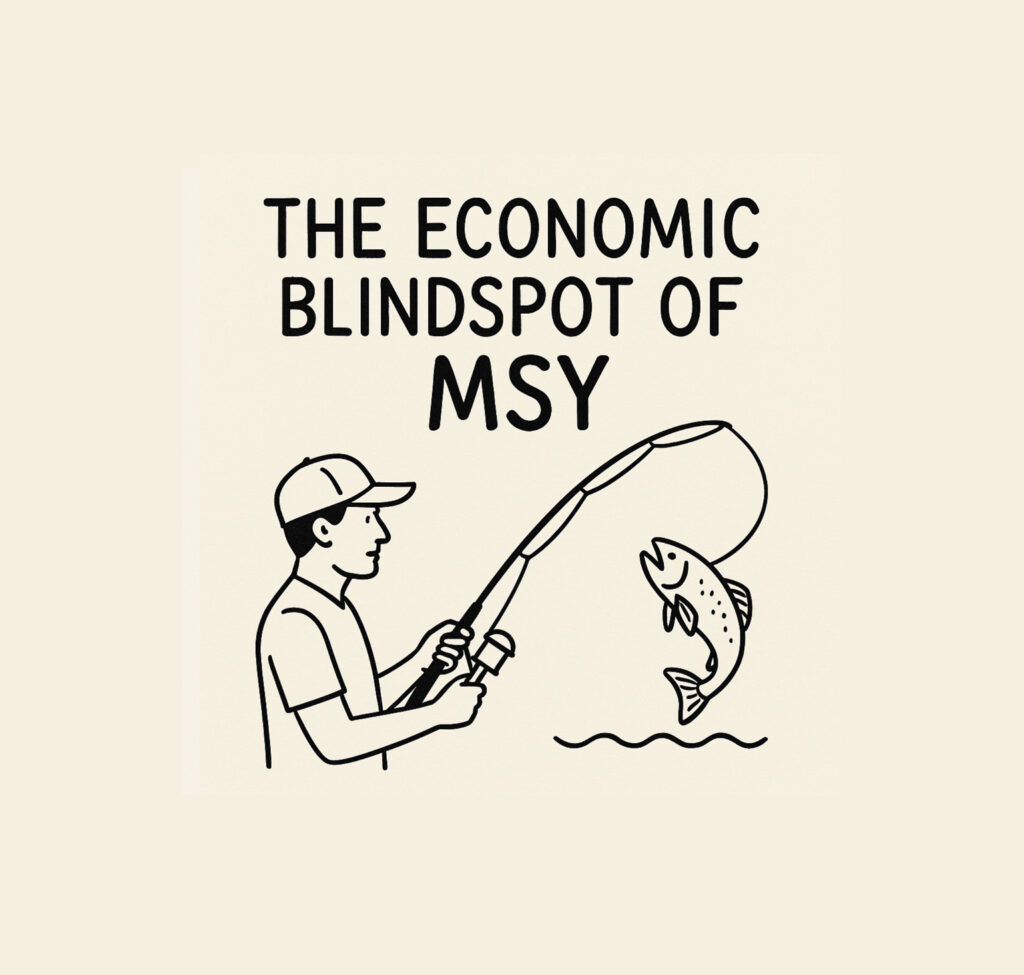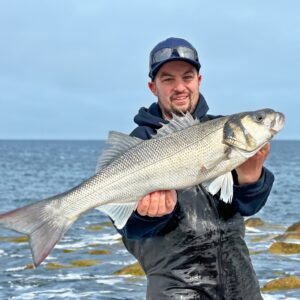When it comes to managing fish stocks, Maximum Sustainable Yield (MSY) has long been the go-to metric for determining how much fish can be caught without depleting populations. While MSY is a vital tool in managing commercial fisheries, it has a glaring economic blindspot: the value of recreational angling. As fisheries management decisions increasingly rely on MSY, it is critical to recognise the broader economic impact that recreational fishing has, not just in terms of ecological sustainability, but also in the livelihoods it supports.
What Is MSY and Why Is It Limited?
MSY is the maximum amount of fish that can be harvested from a specific stock over an indefinite period under constant environmental conditions, without causing the stock to decline. It’s a powerful concept in ensuring fish populations remain healthy and commercially viable. However, this model is primarily designed with commercial fisheries in mind, where the focus is on the volume of fish extracted for profit.
The problem arises when recreational angling , a sector that significantly contributes to both the economy and conservation efforts, is not fully factored into MSY calculations. Fisheries management policies that place a heavy emphasis on MSY often overlook the substantial economic benefits recreational fishing provides. This leads to policies that may inadvertently harm the recreational sector, its associated industries, and the communities that depend on it.
The Overlooked Value of Recreational Angling
In the UK, recreational sea angling is a multi-billion-pound industry. Beyond the angler themselves, it supports a vast network of businesses: tackle shops, charter boat operators, fishing guides, accommodation providers, and hospitality services. These industries depend on healthy fish stocks, and the loss of fishing opportunities, due to MSY-based restrictions, can have a direct and severe economic impact.
For example, a restriction on fishing quotas that does not account for the non-consumptive value of recreational fishing can lead to reduced engagement. Fewer fish in the water may limit anglers’ experiences, discouraging participation and, in turn, reducing revenue for the businesses that rely on it. More than just a pastime, recreational fishing is an essential economic driver, particularly in coastal areas where employment opportunities are often limited.
The Economic Trade-Offs: Commercial Fisheries vs. Recreational Angling
One of the biggest issues with MSY is its tendency to prioritise commercial fisheries over recreational ones. Commercial fishing operations, which often have more direct lobbying power and larger-scale operations, can push for stock levels that maximise short-term yields. Unfortunately, these levels may not always align with the longer-term sustainability of recreational fisheries. While the commercial sector focuses on extracting as much as possible, the recreational sector benefits from more stable, abundant fish populations, which offer greater long-term value through tourism and local spending.
Additionally, there’s an often-overlooked economic trade-off when policy decisions focus too heavily on MSY. By placing such stringent limits on fish stocks, management strategies can lead to reduced fishing opportunities for the recreational community. This results in a loss of income for those who operate in the recreational angling sector, and in some cases, the closure of businesses altogether.
The Need for Holistic Fisheries Management
It is becoming increasingly clear that fisheries management needs to evolve beyond the MSY model. By integrating the economic contributions of recreational angling into decision-making, we can create a more balanced approach that supports both the commercial and recreational sectors.
Recreational fishing offers immense value, not only to the economy but to conservation efforts as well. Anglers often play a vital role in conservation initiatives, advocating for healthier fish populations and supporting sustainable practices. A fisheries management approach that neglects the value of recreational angling risks alienating the very stakeholders who contribute to its long-term success.
In Conclusion: Rethinking MSY for the Future
While MSY remains a useful tool in the management of fish stocks, it is not without its limitations. For the sake of both fish populations and the communities that rely on them, it is time to broaden the scope of fisheries management. By recognising the economic and ecological value of recreational angling, policymakers can ensure that future decisions benefit all sectors, creating a more sustainable and prosperous future for both commercial and recreational fisheries.







